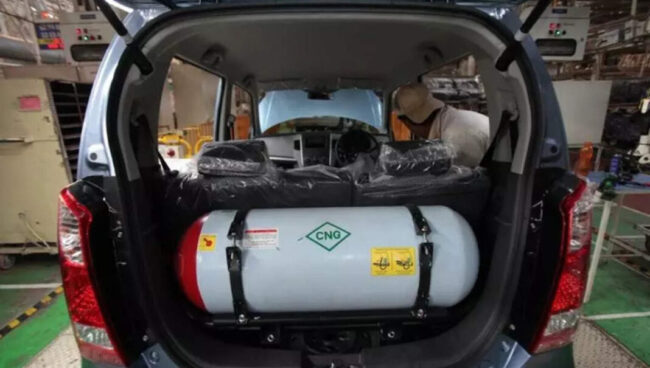As petrol prices soar, many Nigerians are exploring alternative fuels to power their vehicles, with Compressed Natural Gas (CNG) emerging as a cost-effective solution.
However, misinformation about CNG vehicles persists, creating confusion and scepticism among potential users.
Addressing these myths is essential to helping drivers make informed choices about adopting CNG technology.
Here are eight common misconceptions about CNG cars that are not true:
CNG Cars Are Not Safe
Many people believe that CNG cars are less safe than petrol or diesel vehicles. In reality, CNG is lighter than air, so if a leak occurs, it disperses quickly upwards, reducing the risk of fire or explosion. CNG vehicles are designed with multiple safety features, including pressure relief devices and reinforced tanks.
CNG Fueling Stations Are Hard to Find
While it was once true that CNG stations were scarce, many countries, including Nigeria, are expanding their CNG infrastructure. More fueling stations are being built, making it easier for drivers to access CNG fuel.
CNG Tanks Are Bulky and Heavy
There is a belief that CNG tanks take up too much space and add excessive weight to vehicles. Modern CNG tanks are designed to be lightweight and compact, often integrated into the vehicle’s structure without sacrificing passenger or cargo space.
CNG Is a Temporary Solution
Many critics argue that CNG is just a short-term fix in the transition to renewable energy. While it is true that CNG is a fossil fuel, it serves as a cleaner alternative to traditional fuels and can play a major role in reducing emissions until more sustainable technologies, such as electric or hydrogen vehicles, become more mainstream.
CNG Is Harmful to the Environment
There is a misconception that CNG is as harmful as petrol or diesel fuels. In reality, CNG is one of the cleanest-burning fossil fuels, producing significantly lower emissions of carbon dioxide, nitrogen oxides, and particulate matter.
CNG Cars Are Unreliable
Many people believe CNG vehicles are less reliable than their petrol counterparts. In reality, CNG engines are designed for durability and can perform consistently well, often with lower maintenance costs due to fewer moving parts.
CNG Cars Have Poor Performance
Another common misconception is that CNG cars do not perform as well as their gasoline counterparts. However, CNG engines can deliver comparable power and torque, and many drivers report smooth acceleration and responsiveness. CNG vehicles can also benefit from lower emissions, contributing to cleaner air.
CNG Is Expensive
Some believe that CNG is not cost-effective. In fact, CNG is often cheaper than petrol or diesel, depending on the region. Moreover, CNG vehicles can qualify for various government incentives, reducing the overall cost of ownership.
ALSO READ THESE TOP STORIES FROM NIGERIAN TRIBUNE


